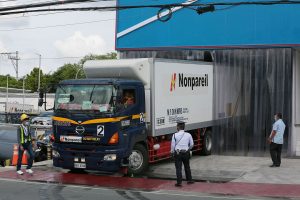
Budget, infra constraints expected to hinder DA food stockpile plan
THE lack of storage infrastructure and funding may pose challenges as the Department of Agriculture (DA) gears up to stockpile agricultural commodities in response to possible shortages, analysts said.
Roy S. Kempis, a retired Pampanga State Agricultural University professor, said in a Viber message that infrastructure like shared community facilities, equipment, and farm-to-market roads will be a challenge if the government plans to build up reserves of agricultural products.
On Monday, the DA said that it is drafting the implementing rules and regulations (IRR) for Section 9 of the Price Act.
Section 9 of the law authorizes the allocation of funding for the procurement, purchase, import, or stockpiling of basic necessities or prime commodities, and determine ways to distribute these items during shortages or in the event of a need to influence market prices.
Philippine Institute for Development Studies Senior Research Fellow Roehlano M. Briones said that the DA would need the spending capacity to continue stockpiling commodities like rice if it is to move market prices significantly.
“The big problem is the cost of the rice stockpile; we’ll need a much larger budget if we want to have a stockpile large enough to stabilize prices,” Mr. Briones said in a Viber message.
The National Food Authority (NFA) is authorized to purchase domestically grown rice and hold it in reserve in the event of shortages or calamities, as outlined in the Rice Tariffication Law of 2019 (Republic Act No. 11203).
Philippine Chamber of Agriculture and Food, Inc., President Danilo V. Fausto said NFA warehouses, which are typically used for rice storage, should also be configured to store prime commodities like high-value crops.
“It is not just funding that they need, but storage as well. I recommend the use of NFA facilities for storage,” Mr. Fausto said by telephone.
A technical working group created by the DA will consult with consumer groups and collaborate with the Department of Trade and Industry and other government agencies to develop the IRR.
Under the Price Act, the DA has the power to monitor the prices of crops, fish and other marine products, fresh meat, fresh poultry, dairy products, fertilizer and other farm inputs during emergencies.
Mr. Fausto listed products like high-value crops, meat, fish, and dairy as candidates for stockpiling.
“All seasonal commodities should (also be stockpiled,” he said.
“Due to seasonality, there are times when products like high-value crops have price surges when there is insufficient supply,” he added. — Adrian H. Halili



